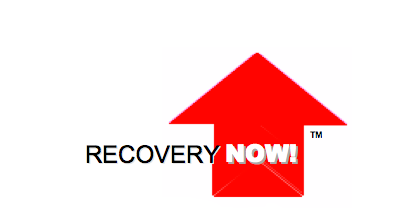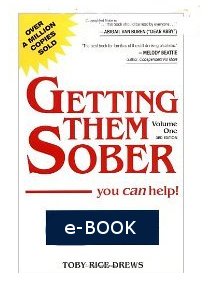Ethical Addiction Treatment
Ethical Addiction Treatment

Ethical Addiction Treatment:
Can You Force
Treatment?
By Ned Wicker
It’s an ethical
issue. On the one hand, according the
Alcoholics Anonymous 12 Step program, “(We) came to believe that a power
greater than ourselves could restore us to sanity.” That implies that alcoholism/drug addiction
is a mental disorder and through a process, we can become healthy again.
We also accept the fact that in many cases the disease of
addiction, if you chose to call it a disease, left untreated, will eventually
kill the person. We also understand that
the disease can cause a person to act “strangely” or in a way that is not in
his/her best interest. So is it not
logical to put some of those pieces together and state that it is necessary to
treat the disease and save the life of the individual, even if it means going
against his/her will?
Addicts can and often
do refuse treatment
However, the
rights of the individual are paramount in the United States and we have the right
to refuse treatment. In hospitals every
day doctors have discussions with patients and family members about treatment
for a potentially fatal condition, to determine whether or not to continue
treatment, or switch to palliative care, or just do nothing at all.
Patients complete a medical power of attorney, which is a
document that gives the final medical decision to a person of the patient’s
choosing in the even he/she is incapacitated or otherwise incapable of making a
decision. I have participated in many
discussions concerning treatment options, as family members struggle with the
presenting issues.
The recommendations of the doctor, based on medical evidence
and experience, may or may not factor into the decision. I share this because we go out of our way in
this society to give the person the right to choose.
Addiction is
treatable
This right to
choose is an issue because addiction is very treatable. We can’t cure it, but people do overcome and
learn to live a happy and healthy life.
It’s not a pipe dream. The
trouble is if I have a failing heart I am going to know it. There will be symptoms which I can’t ignore
in most cases, so I seek help. They may
have to replace a valve, or remove a blockage, or even to open heart
surgery.
The addict, however, ignores the obvious symptoms of his/her
disease. They do not have a problem, you
have a problem. They don’t want to stop
and they can’t stop. But they have the
right to continue killing themselves.
They may drive drunk, they may commit crimes, they may act irrationally
after using their drug of choice, but they have the right to refuse treatment.In this case no treatment is considered to be ethical addiction treatment.
Addiction causes MANY
other health problems
The disease causes so many health issues. Emergency rooms
are filled with drug cases, people are in and out of hospitals with a variety
of ailments, all related to the addiction, but we treat the presenting
symptoms, not necessarily the cause.
I recall a case of a young man, in his late 40’s, who refused
treatment for his alcoholism for years and eventually just drank himself to
death. By the time he came to our
emergency room it was already too late.
The medical team tried, but the die had been cast. Through the years, even though every member
of his family knew he was an alcoholic, even after he lost his job, his family
and everything of meaning, and based on ethical addiction treatment he still
had the right to refuse.Is that really ethical addiction treatment?
Should we force
people into addiction treatment?
Am I my
brother’s keeper? It’s an interesting
question and one that requires examination.
What does that mean? Does that
mean I should force by brother to receive treatment for his disease even though
he refuses? Does that mean my sister
must endure my intercession?
Conventional wisdom suggests that people have to go “thud”
or hit bottom as they say, before they begin to look up and ask for help. I have seen all too many times that “thud” is
too late. Well, we’ll let them go along,
but if they commit a crime, by golly, we’ll throw them in jail. You can drink all you want, but if that
means it changes you from a rationally-functioning member of society into an
idiot, we’ll incarcerate you and tell ourselves that we’ve done our part.
We send them away and dry them out, but without treatment,
they just go back to suing and the cycle begins again.
Can I force a loved
one to get treatment?
Can I force you
to get treatment? Should I force you? What is the standard for ethical
addiction treatment?
If you are in the clutches of the disease and can’t, or will
not make a good decision for yourself, then I am compelled to try to help. Throwing you in the county cooler is
expensive and I would argue more expensive than treatment. But it is sometimes the only option, because
you have the right to refuse treatment for a recognized mental disorder. Repeat drunk driving offenders are classic
examples of this. They are in court over
and over, yet the discussion centers around how much time they should do for
their crime, but precious little is talked about when someone suggests
treatment.
Families have HUGE
impact and can really help
Families can
have tremendous impact on addicts, buy not enabling the behavior, but forcing
the issue of treatment. That “power
greater than ourselves” might be the love of family and the caring that comes
through close, family relationships.
Addicts often go because they love their family. Sometimes they go because the court orders
treatment, so they comply because they don’t like the alternative.
When there is a
history of addiction, when there are so many signs of the disease and how it is
impacting the downward spiral of a person’s life, do you really want the addict
to make the call?
The very thought process that contributed to the advancement
of the disease is not going to be reliable when making the decision whether or
not to treat the disease. When addiction
comes into bloom, they have gone beyond their ability to act in their own best
interest. It’s a sticky issue, both
ethically and legally, isn’t it? We know
what the addict is doing, but what is our response? Food for thought. What is ethical addiction
treatment?
That completes our comments on ethical addiction treatment, visit our home page for more or return to addiction denial.
Other Addiction Resources

Are you or a family member struggling?
Do you need help RIGHT NOW?
Available 24/7 for HELP!

HOW TO USE THIS SITE:
This site contains five MAIN pages that EVERYONE should read:
ABOUT…
Read these five pages and learn what you need to know to spot Addiction to Drugs in:
Yourself… Your Family… Your Friends… Your Community…
The rest of the pages are there for your reference to explain important topics in more detail.
If you have questions about addiction please CONTACT US , and we will confidentially post and answer your question.
Don’t miss the Spiritual and 12-step sections to fully explore how understanding THE SPIRIT can lead to recovery!
and Finally Remember:
“Ask and it will be given to you; seek and you will find; knock and the door will be opened to you. For everyone who asks receives; he who seeks finds; and to him who knocks, the door will be opened.”
– Matthew 7:7-8
Today’s Show
Learning how to share with others can be difficult because of addiction, this week on Recovery Now!
Search Drug-Addiction-Support.org Here!
Haven’t found the information on drug and alcohol addiction that you were looking for? Please enter your search term below and search this site.
/**/
Follow on Twitter or Google+
Getting Them Sober e-book will answer all of your questions about how to HELP your son/daughter or husband/wife recover from their addiction. Don’t miss this wonderful opportunity to gain all of the answers you REALLY need for only $9.95!


